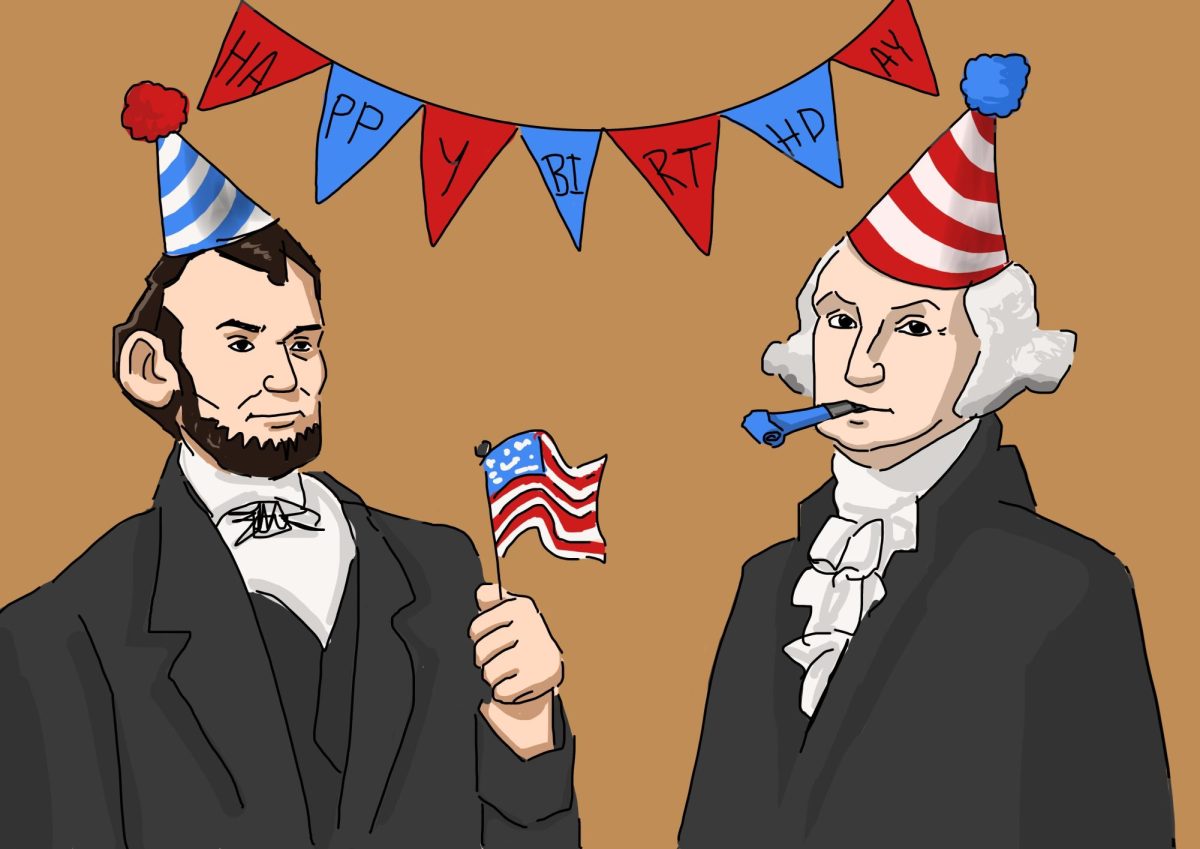As Americans are preparing for the long weekend ahead, Presidents’ Day is often seen as a time for retail sales and a short time off from school or work. However, the holiday has a deeper meaning that is more important than the discounts and the time off.
Recognizing Presidents’ Day is an opportunity to reflect on the nation’s history, honor past leaders and educate American citizens – most importantly, America’s youth – on the importance of the holiday.
The holiday was created to celebrate the birthday of George Washington, the first president of the United States, and was recognized as a federal holiday on Jan. 31, 1879. The holiday was celebrated on Washington’s day, Feb. 22, until 1968, when Congress passed the “Uniform Monday Holiday Act,” which was made to give employees more three-day weekends. Under the law, the holiday takes place on the third Monday of every month.
President Lincoln’s birthday was Feb. 12, which further led to the holiday being recognized as a day to honor all United States Presidents. While it is still officially recognized as “Washington’s Birthday” by the federal government, Presidents’ Day has evolved into a celebration of presidential leadership and its impact on the country.
According to www.mountvernon.org, “While the name “Presidents’ Day” was proposed for this Monday holiday in 1951, the U.S. government never officially changed the name. In the 1980’s, thanks to advertising campaigns for holiday sales, the term became popularized and largely accepted.”
Since Washington’s inauguration in 1789, our nation has had 46 presidents, each leaving a distinct mark on the country. Presidents’ Day reminds Americans of the tremendous responsibilities and challenges faced by those who have had the privilege of serving our country.
Reflecting on the individuals who have led our country to pride itself in strength and resilience is an effective way to gain knowledge on our country’s rich history.
From an article published on www.gvsu.edu, “The day most associated with Washington and Abraham Lincoln serves as a reminder to the importance of the presidency and how transformative the role was in the age’s politics.”
Abraham Lincoln fought to preserve the Union during the Civil War and supported the abolition movement. Franklin D. Roosevelt displayed unwavering leadership through the massive poverty and unemployment rates during the Great Depression and proved himself to be a true leader during World War II. Barack Obama became the first black president in American history; he fought for civil rights and affordable healthcare for American citizens. These are all presidents to be remembered and admired as Americans reflect on the history and decisions that shaped the country.
Civic engagement is important as modern political debates continue to shape the future of America. By studying past presidents’ successes and failures, we can gain insights into the qualities that define effective leadership and inform their choices as voters,
In a time of historically significant political division, Presidents’ Day can remind Americans of the values that unify us. The holiday can highlight Americans’ shared values of democracy, public service, and national progress. As our country continues to evolve in the twenty-first century, Presidents Day remains an important American tradition to honor the leaders who have served in the nation’s highest office.






